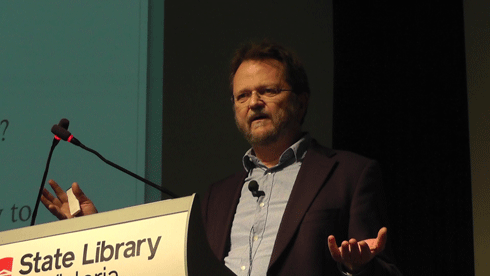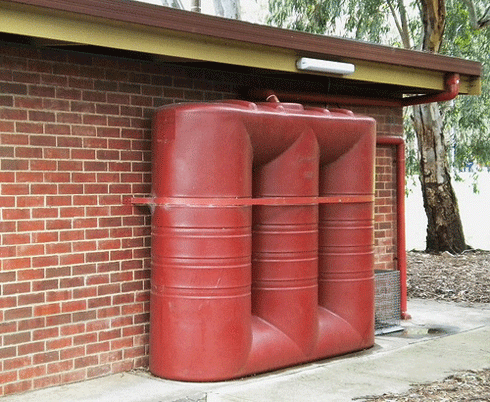
|
Published: 14 May 2012
Small green steps no guarantee of bigger change
Danish psychology professor, John Thøgersen, believes we don’t know enough about why people engage in pro-environmental behaviour. Sonja Dechian finds out that his research challenges received wisdom about what drives people to make real change for the environment.

|
| Human behaviour is complex and unpredictable, making it difficult to determine what will drive behaviour change. |
You’ve probably heard that saving the planet only takes a few, simple steps.
Environmental campaigns have encouraged people to take these easy steps in the belief they will snowball into more significant lifestyle changes, once people start to see themselves as proactive, concerned citizens.
But, does this play out in the real world? Are people who turn off the tap while brushing their teeth more likely to switch to a renewable energy supplier? Are those who dutifully separate their recyclable plastics from food scraps for the compost more inclined to support an environmental tax?
It’s a key question for the environmental movement: and one that Professor John Thøgersen – professor of economic psychology at Aarhus University in Denmark – explored on his recent visit to Australia.
‘Our approach hedges on the idea that what we do in one area is relevant for what we will do in other areas: that there might be what I have called a spillover from green behaviours in one area to green behaviours in other areas,’ he says.
Prof. Thøgersen’s term of ‘positive spillover’ is the idea that taking these small steps will lead an individual to an acceptance of larger, more dramatic changes. Environmental organisations and activist groups have long approached the challenge of motivating significant behaviour change by starting with this ‘foot in the door’ philosophy. It’s also referred to as a ‘catalytic’ approach: getting people on board with a few simple steps that encourage pro-environment behaviours and act as entry points into more sustainable lifestyles.

|
|
Professor John Thøgersen speaking in Melbourne, May 2012 Credit: BehaviourWorks
|
It is clear that large-scale changes are required to meet environmental challenges such as global warming. Because governments remain hesitant to initiate economic and policy changes without public pressure, the impetus for change on this scale will need to come from the broader community. For Prof. Thøgersen, a key question is whether positive spillover might be harnessed as a ‘mechanism that can amplify behavioural campaigns.’ He is asking if there is any evidence that small, easy changes can get us there.
The answer isn’t yet clear, but Prof Thøgersen’s examination of the research leads us in some fascinating – and confounding – directions. ‘If there is a link between behaviours,’ he asks, ‘can we be absolutely sure it is positive?’
Could these small pro-environment steps, in fact, lead us in the other direction? This phenomenon, termed ‘negative spillover’, arises from the sense of entitlement a person feels when they have done something that makes them feel like a ‘good’ person. Prof. Thøgersen describes this as a compensatory mechanism: our good behaviour makes us feel entitled to do something ‘bad’. So for example, someone who’s been to the gym might feel entitled to eat a slice of cake.
But, does this ‘moral licensing’ transfer to pro-environmental behaviours?
A study1 at the University of Toronto tested this idea by asking volunteers to spend a set amount of virtual money in a mock online store. Half were assigned to a ‘green’ store, the other half to a regular store. Following this, the students carried out an exercise to determine how much money they would take from a shared kitty, based on an honour system. Students who had shopped in the green store were significantly more likely to allocate themselves a more generous payment than they were objectively entitled to – in other words, they were more likely to steal.
But, does this prove that green consumers, imbued with a sense of moral entitlement, are more likely to steal?
‘Definitely not,’ says Prof. Thøgersen. ‘These were not green consumers by choice. They were young people more likely to fall for temptation when the situation had bestowed them with moral credentials of any kind.’
He goes on to explain that rather than worrying that green consumers are going to start lying and stealing, we should be far more concerned that people will do their one small thing for the environment, and then feel they’ve done their bit – with no knock-on effect at all.
‘There are a number of studies that report positive correlations between common environmental behaviours, and I have yet to see a study that reports negative correlations,’ he says. ‘Of course, correlation does not prove causality; but, if there was a strong negative spillover effect going on, we should see negative correlations sometimes. But we don’t.’
One important factor Prof. Thøgersen outlines in determining the likelihood of catalytic behaviour change is self-perception. ‘If you do something for the environment, you will be more likely to perceive yourself as an environmentally friendly person: and, therefore, you would be more likely to do things that an environmentally friendly person would do.’
The factors motivating behaviour change appear to be crucial here. If consumers are taking pro-environment actions for financial reasons, they are not as likely to define themselves as one of Thøgersen’s ‘environmentally friendly people’.
So, if you are switching to solar power primarily to save money, you are less likely to feel motivated to make other pro-environmental changes, because that was never your driving force anyway.
Research seems to support the idea that related behaviours tend to be more strongly correlated than behaviours that are less similar. But, as Prof. Thøgersen explains, this too challenges the idea of catalytic behaviour change, because ‘the small things are likely to be different from the big things.’And, it’s the big things – the policy changes and government interventions – that matter most.
So far, Prof. Thøgersen’s research shows a positive correlation between pro-environment activities and support for pro-environment policy. A study2 on attitudes to wind power found that even small pro-environment activities increased support for wind power above the effects of being environmentally concerned alone. The takeaway message from Prof. Thøgersen’s research seems to be that there is potential for positive spillover to be harnessed to accelerate behaviour change – and public acceptance of pro-environment policy – but, the risk of encouraging small steps alone is that people may come to believe that only small changes are required.
More information
Professor Thøgersen’s visit to Australia was supported by BehaviourWorks Australia, a research centre for behaviour change for environmental sustainability based at Monash University in Victoria. A video of his presentation can be viewed here.
1 Mazar N and Zhong CB (2010) Do Green Products Make Us Better People? Psychological Science 21, 494–498.
2 Thøgersen J and Crompton T (2009) Simple and painless? The limitations of spillover in environmental campaigning. Journal of Consumer Policy 32, 141–163.




